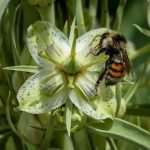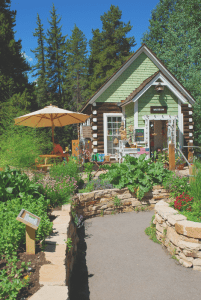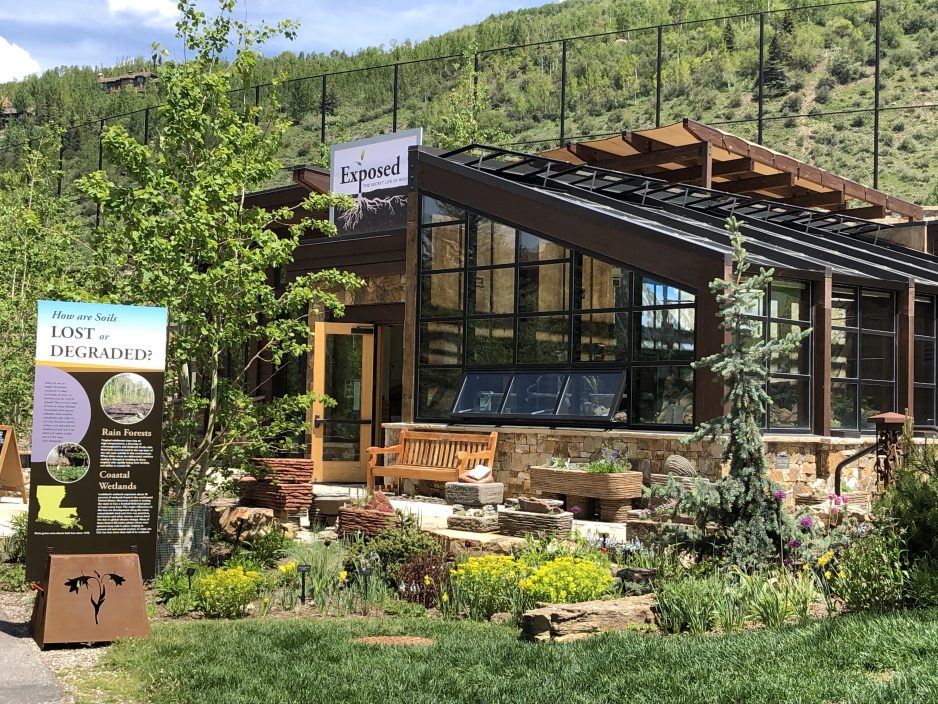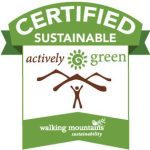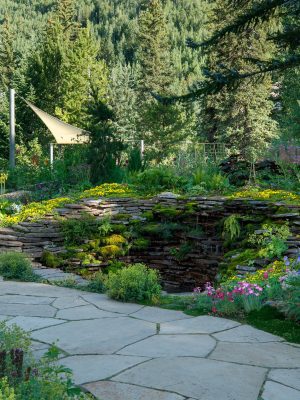Eagle Valley Outdoor Movement (EVOM)
A group of local non-profits and organizations “striving to provide equal access to outdoor spaces and opportunities for youth and families in Eagle Valley”. We’ve teamed up with Walking Mountains Science Center to provide no-cost field trips and activities to our community members interested in getting more in touch with their local surroundings.
Environmental Internships
Inspiring future environmental leaders. One to two high school interns studying environmental leadership join our summer team for real life experience in an environmental organization. We also host four college interns a year with specialties in horticulture, education and conservation.
Climate Action Collaborative (CAC)
The Gardens is a stakeholer in helping implement the Climate Action Plan for Eagle County. The Gardens is also a member of the CAC specialized working groups of Natural Climate Solutions and Water.
Sustainable Destination Committee
The Gardens is part of the group that led the way to Vail becoming the first town in the United States to become a certified Sustainable Destination.
Colorado Tourism Office, Care for Colorado Coalition
Along with the work the Gardens puts into protecting the alpine, we’ve joined this special coalition of more than 100 statewide organizations to help promote Leave No Trace principles to “protect the state’s extraordinary natural and cultural resources”.
The Climate Toolkit
The 100th organization to join! “A collaborative opportunity for museums, gardens and zoos who want to learn how to aggressively address climate change within their own organizations and inspire the communities they serve to follow their lead.
Currently, the Climate Toolkit embraces thirty-two goals for addressing climate change within the categories of energy, food service, transportation, plastics, landscapes and horticulture, investments, visitors and research. The goals were determined through a collaborative process with input from members of the Directors of Large Gardens group.
The Climate Toolkit’s goals are designed to align with both the United Nations Sustainable Development Goals and the Project Drawdown Table of Solutions
Citizen Science Projects
Click here to learn more about our alpine conservation efforts, partnerships and citizen science projects.
- EcoFlora
- Project RiverWatch
- Pika Project
- FeederWatch
North American Botanic Garden Strategy for Alpine Conservation
Along with Denver Botanic Gardens, Betty Ford Alpine Gardens piloted and is executing the goals “to encourage plant conservation organizations to contribute to the collective goal of conserving North American alpine plants and their habitats”, “provide a framework for North American botanic gardens to address the environmental and climate change challenges facing alpine ecosystems” and “highlight the critical role that botanic gardens can play in research, conservation, and education”. Click the link to learn more about the objectives and targets.
